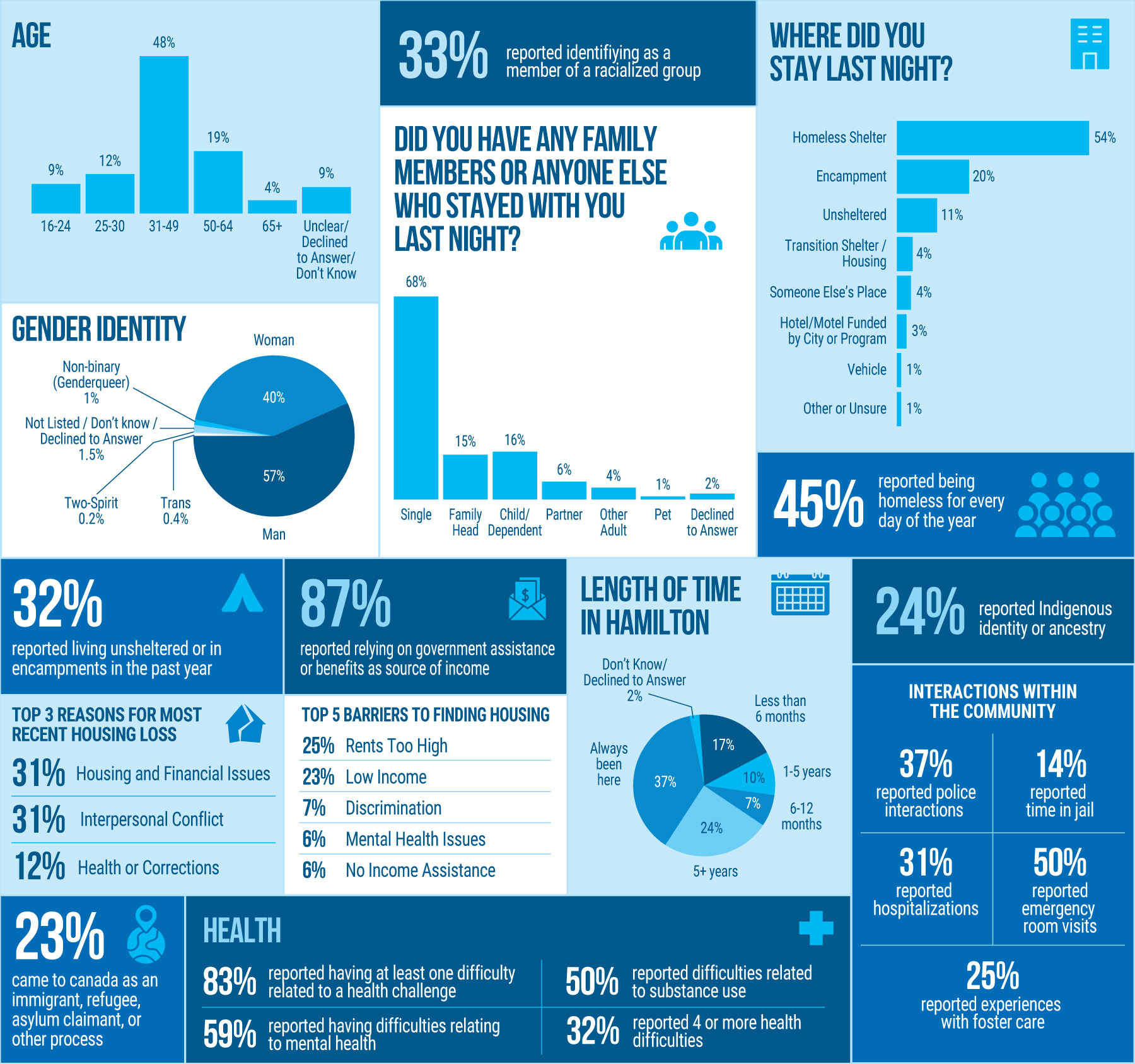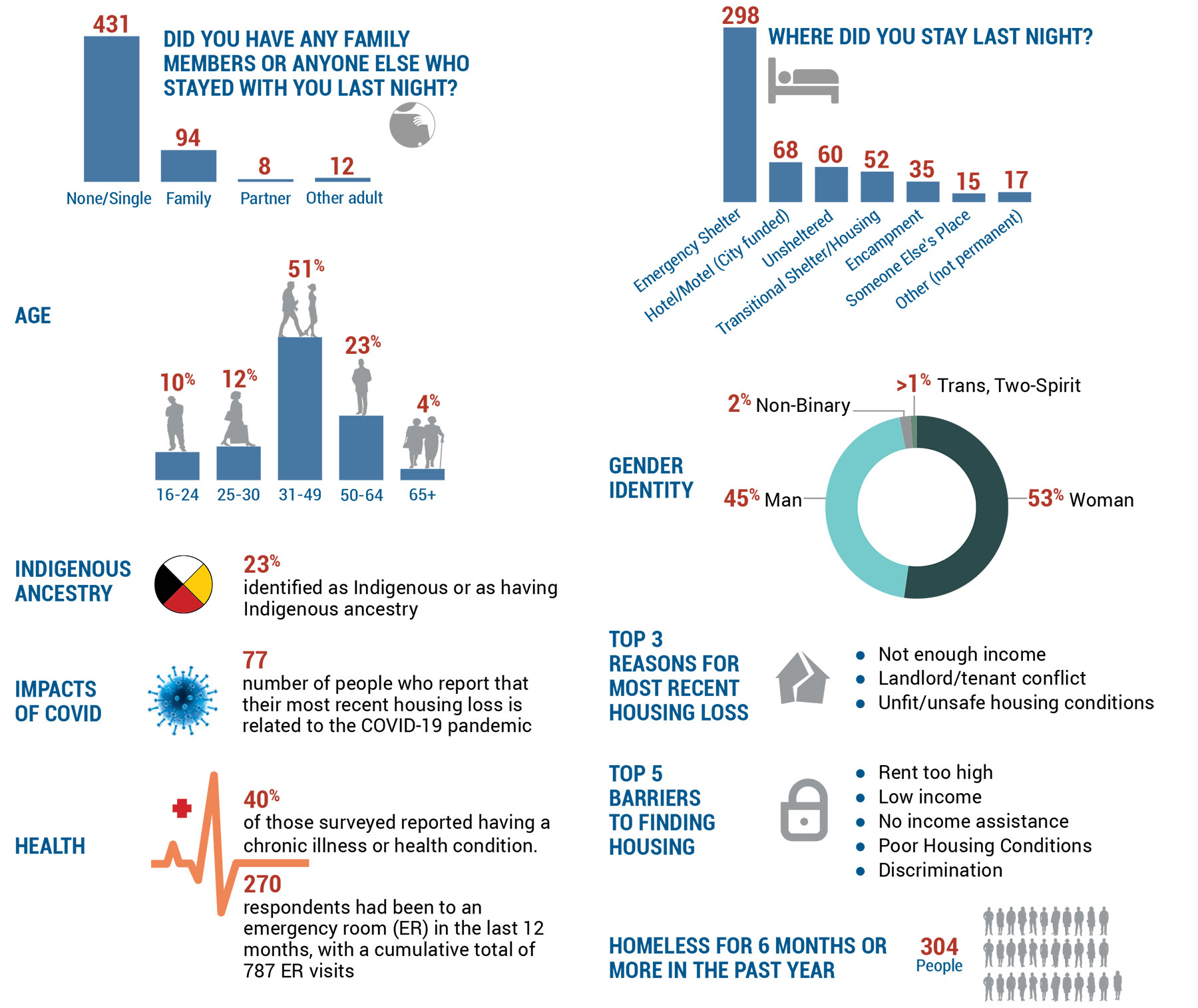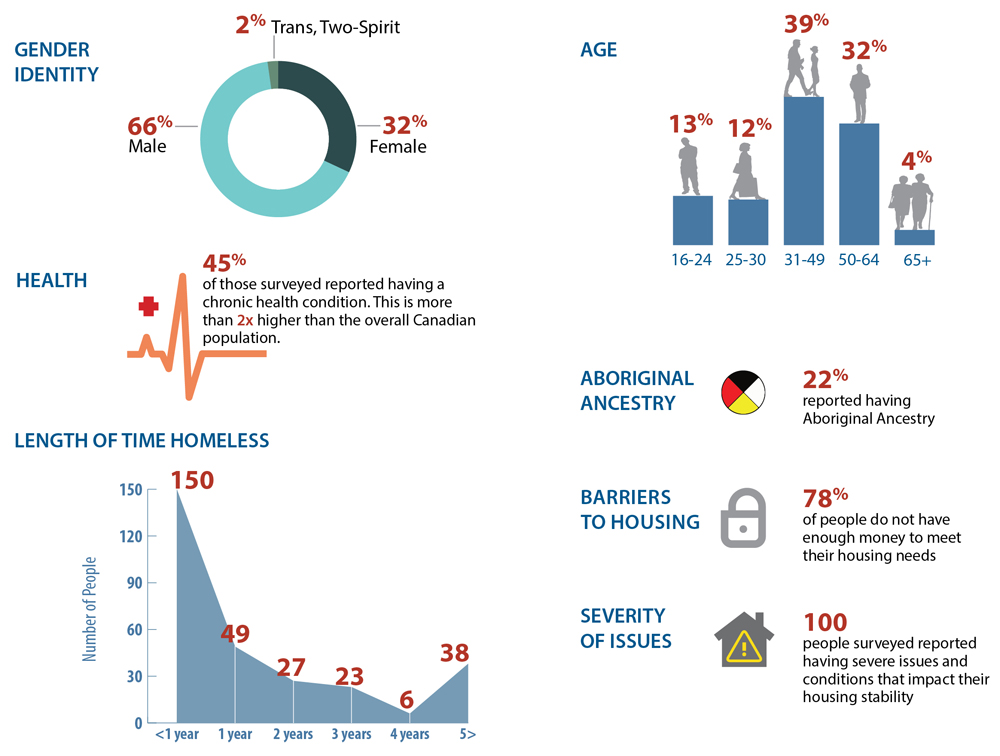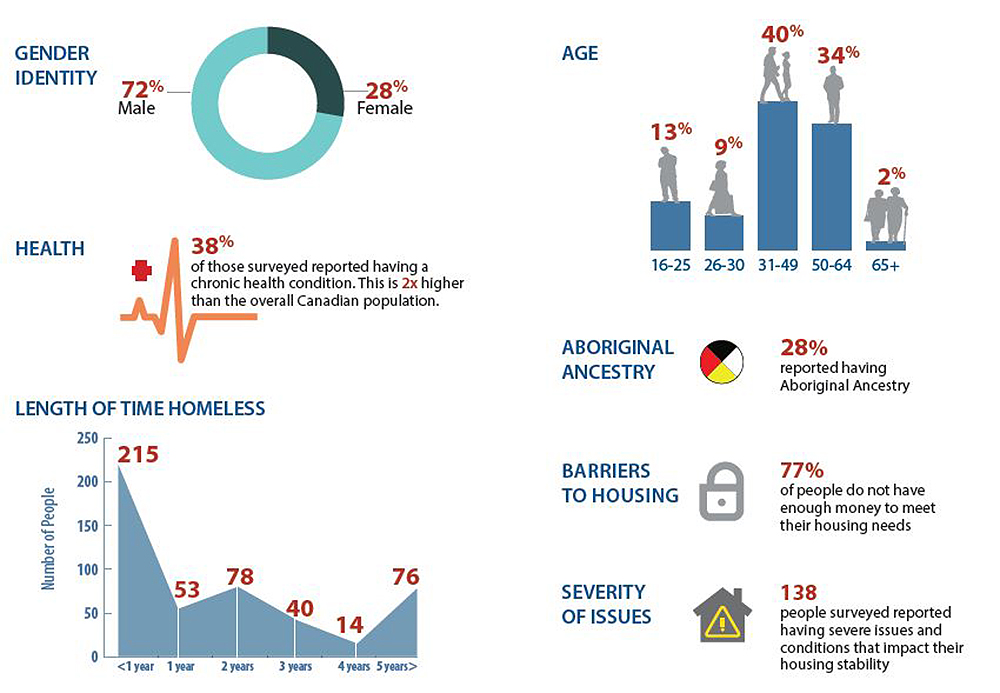Point in Time Connection

Homelessness Policy & Programs
Call 905-546-2424 ext. 4666
Email [email protected]
From November 4 to 8, 2024, the City of Hamilton participated in the national Point-in-Time Count of Homelessness, known locally as the Point-in-Time Connection (PiTC). This project was led by the City’s Housing Services Division and the Coalition of Hamilton Indigenous Leadership (CHIL).
The PiTC has two parts: a count and a survey. The count records the number of people experiencing homelessness on a single night, while the survey provides a detailed snapshot of homelessness in our city by gathering essential information about an individual’s housing history, health and social needs. In addition, CHIL hosted an Indigenous Magnet Event to offer Indigenous people experiencing homelessness a more culturally safe and appropriate opportunity to participate in the PiTC.
This data helps us better understand homelessness, track changes over time, allocate resources effectively and improve support services. It also complements local prevention and reduction strategies.
Background
- The PiTC aligns with Reaching Home: Canada’s Homelessness Strategy and the Ontario Minister of Municipal Affairs and Housing’s directive on the enumeration of homelessness. It also supports Hamilton’s Housing and Homelessness Action
Plan, which is currently being updated. - Hamilton was the second community in Ontario to undertake homelessness enumeration in 2016 and one of the first to put in place a Coordinated Access system using By-Name Data.
- The 2024 PiTC used the same core methodology as previous PiTCs in 2016, 2018, and 2021, with enhancements for more culturally sensitive and relationship-based surveys.
On November 4, 2024, the enumeration counted 1,216 people experiencing homelessness in Hamilton on that day.
Between November 4 and November 18, 2024, 807 valid PiTC surveys were voluntarily completed with individuals experiencing homelessness in the City of Hamilton, representing 66% of the enumerated population.
Surveys were completed with support from staff working in shelters, drop-ins, and Housing Services Division teams. In addition, the Coalition of Hamilton Indigenous Leadership held an Indigenous magnet event at Beasley Park on November 18 to provide an opportunity for Indigenous community members to be surveyed by Indigenous surveyors. In addition to the snapshot of key data points, a more detailed analysis comparing the 2024 PiTC to the 2021 results is available in the report linked below.

Infographic Description
Documents & Reports
545 surveys were completed during the week at emergency shelters, drop-in programs, community agencies, and in unsheltered locations. Indigenous led magnet event was also held in Beasley Park on November 17 to provide an opportunity for Indigenous community members to be surveyed by Indigenous surveyors.

Infographic Description
- City of Hamilton Point in Time Connection Results - 2021
In keeping with the principles of Indigenous data sovereignty, as directed by the Indigenous Community Advisory Board (ICAB), CHIL will continue to lead the analysis of Indigenous respondent data and the City of Hamilton will not use this data without the approval of the ICAB. See below for the full analysis of Indigenous respondent data, completed by CHIL and approved by the ICAB: - 2021 Point in Time Count Indigenous Responses – Hamilton
- 2021 PiT Infographic - Indigenous Respondents
During the initiative, 235 volunteers and professional social service staff canvassed Hamilton’s urban, suburban and rural areas, emergency shelters, drop-in programs and community agencies. Together we surveyed 338 individuals and completed 48 family surveys. This initiative continues to support the efforts of the 20,000 Homes Campaign.

Infographic Description
Gender Identity
- Male 66%
- Female 32%,
- Trans, Two Spirited
Age
- 16 to 24: 13%
- 25 to 30: 12%
- 31 to 49: 39%
- 50 to 64: 32%
- 65+: 4%
Health
- 45% of those surveyed reported having a chronic health condition. This is more than 2x higher than the overall Canadian population
Length of homelessness
- Less than 1 year: 150 people
- 1 to 2 years: 49
- 2 to 3 years: 27
- 3 to 4 year: 23
- 4 to 5 years: 6
- More than 5 years: 38
Aboriginal ancestory
- 22% Reported having aboriginal ancestory
Barriers to Housing
- 78% People do not have enough money to meet housing needs
Severity of Issues
- 100 People surveyed reported having sever issues and conditions that impact their housing stability
The Point in Time Connection continues to support a national campaign led by the Canadian Alliance to End Homelessness to house 20,000 of Canada’s most vulnerable people experiencing homelessness by July 1, 2020. Hamilton was one of the first cities in Canada to pilot 20,000 Homes.
263 volunteers and professional social service staff canvassed Hamilton’s urban, suburban and rural areas, emergency shelters, hospitals and community agencies. Together we surveyed 504 individuals experiencing homelessness. Hamilton’s count continues to support the efforts of the 20,000 Homes Campaign.

Infographic Description
Gender Identity
- Male 72%
- Female 28%
Age
- 16 to 25: 13%
- 26 to 30: 9%
- 31 to 49: 40%
- 50 to 64: 34%
- 65+: 2%
Health
- 38% of those surveyed reported having a chronic health condition. This is more than 2x higher than the overall Canadian population
Length of homelessness
- Less than 1 year: 215 people
- 1 to 2 years: 53
- 2 to 3 years: 78
- 3 to 4 year: 40
- 4 to 5 years: 14
- More than 5 years: 76
Aboriginal ancestory
- 28% Reported having aboriginal ancestory
Barriers to Housing
- 77% People do not have enough money to meet housing needs
Severity of Issues
- 138 People surveyed reported having sever issues and conditions that impact their housing stability
